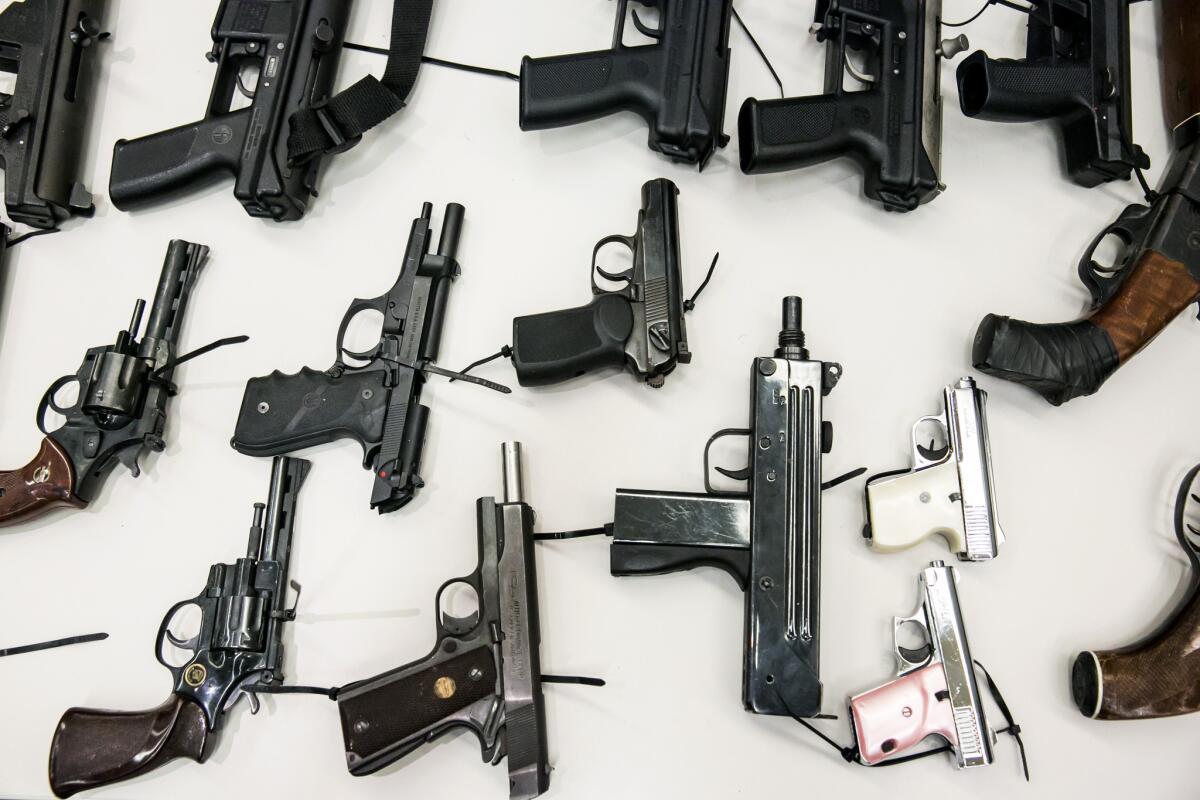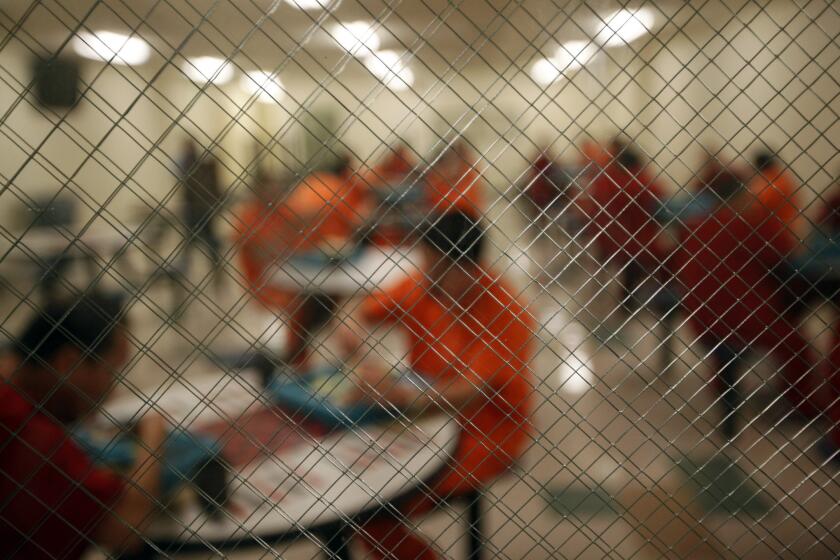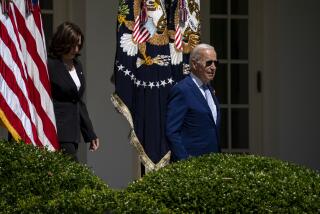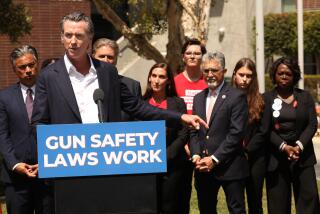Opinion: Unless you plan to shoot the viruses one by one, gun shops aren’t essential services

- Share via
We’re in the midst of a pandemic, with residents in many states around the country — including California —under orders to remain at home except for essential trips to essential businesses.
A run to the drugstore for a prescription is still allowed, for obvious reasons. So is going the grocery store to stock up on food.
But how about a quick trip to the nearest gun shop for a new .38 and some ammo? Should that be allowed when we’re all being told to stay home?
Well, according to gun advocates — including, naturally, the National Rifle Assn. — it should be. They are pushing for shutdown-order exemptions for gun shops, arguing that they provide an essential service during a pandemic.
That’s ludicrous. Unless you plan on shooting those little coronaviruses one by one, no, gun shops are not providing an essential service during a pandemic. They are profiting from the marketing of fear — get armed now before the desperate hordes invade your neighborhood in search of toilet paper!
There is confusion over this issue, as a result of how these different decrees have been framed and delivered in different states. The Trace, a nonprofit news site devoted to covering gun violence, is keeping track state by state.
Here in California, Gov. Gavin Newsom’s stay-at-home order exempted a range of operations from the shutdown order, but that list didn’t include gun shops. Yet absent a specific order to shut their doors, some have stayed open.
Over the last few days, Los Angeles County Sheriff Alex Villanueva began ordering gun shops to close, deeming them nonessential under the stay-at-home order. But then he said the “county’s top lawyer” advised that such shops could remain open, so he gave up and said it was up to Newsom’s office to say yay or nay on the gun shops.
The governor needs to say nay, and soon.
A health worker at an immigrant detention center has contracted COVID-19. Officials say it hasn’t spread, but we know how that story will play out.
The U.S. Supreme Court ruled in the 2008 District of Columbia vs. Heller case that the 2nd Amendment protects the right of an individual to own a firearm in the home for self-protection. It was an atrocious decision that ran contrary to decades of jurisprudence (you can catch up here), but as long as that’s the current standard, we’re stuck with it.
But that doesn’t mean that individuals have the right to buy any gun or ammunition at any time they want. In fact, in the Heller decision, Justice Antonin Scalia wrote that the government has a legitimate interest in regulating the sales of firearms and that “nothing in our opinion should be taken to cast doubt on longstanding prohibitions on the possession of firearms by felons and the mentally ill, or laws forbidding the carrying of firearms in sensitive places such as schools and government buildings, or laws imposing conditions and qualifications on the commercial sale of arms.”
And ordering gun shops closed along with most other businesses clearly falls under that authority to impose conditions on the sale of weapons.
Other issues here are more problematic. Since the onset of this pandemic, gun shops have been doing big business. According to several news reports, some Asian Americans, fearing racist attacks after the outbreak began in China, began arming themselves. Then other individuals fearing the breakdown of social order began lining up. And those who already had guns (and in some cases arsenals), began buying more guns and ammunition.
Are those the rational responses to the spread of a virus? No. They are functions of fear. Understandable fear, to be sure. This virus is a scary threat to humans, and as a society we were woefully ill-prepared for it. We’re still scrambling to catch up, and it’s unclear whether we will.
But more of us buying guns or expanding personal armories is not a rational response to a medical emergency. It is caving in to dark thoughts and expectations, and it moves the needle on our collective safety a little further down the “dangerous” part of the scale.
More to Read
A cure for the common opinion
Get thought-provoking perspectives with our weekly newsletter.
You may occasionally receive promotional content from the Los Angeles Times.












